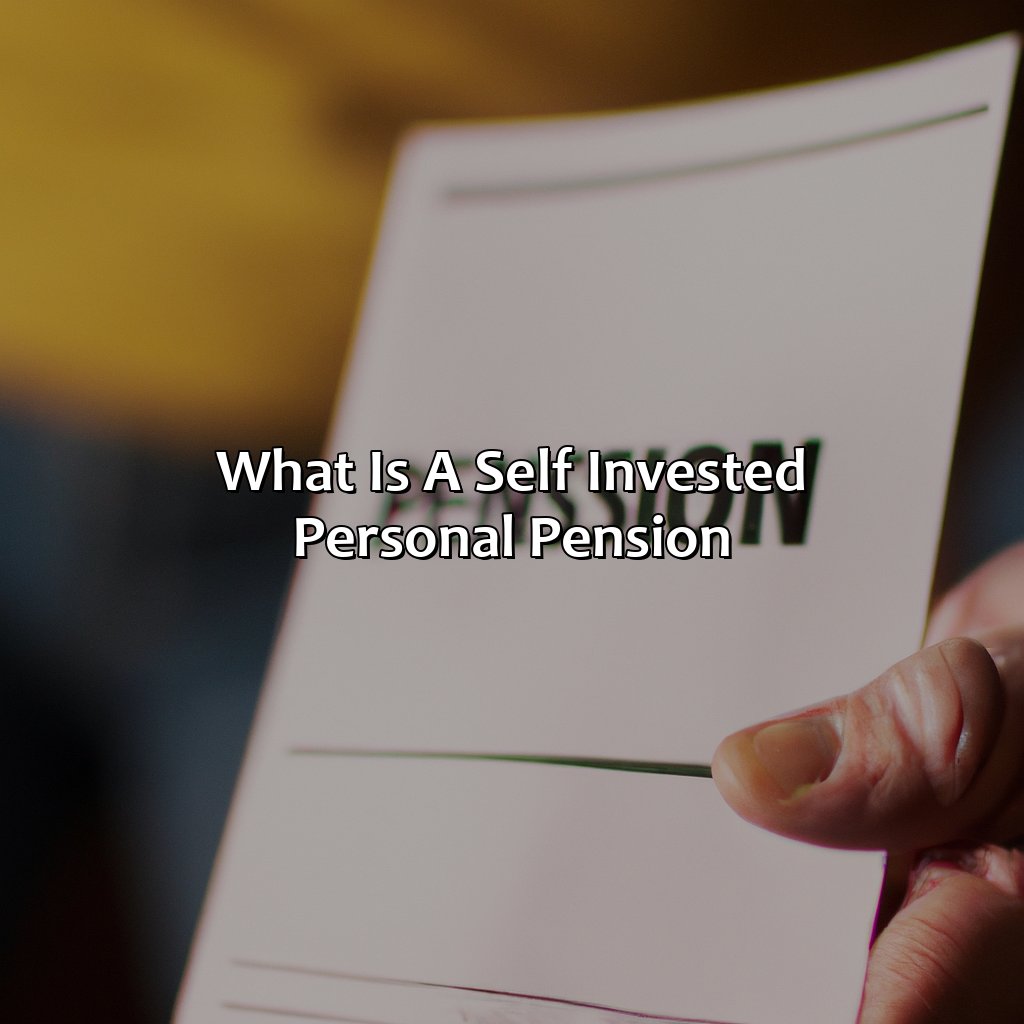What Is A Self Invested Personal Pension?
Key Takeaways:
- A Self Invested Personal Pension (SIPP) is a personal pension plan that offers individuals more control and flexibility over their investments and retirement planning.
- One advantage of SIPP is the tax benefits it offers. Contributions are tax-free, investments grow tax-free, and withdrawals are taxed at the individual’s marginal tax rate.
- Another advantage of SIPP is the control and flexibility it offers over investments. Investors can choose from a wide range of assets, from stocks and shares to property, to build a diversified portfolio that suits their individual needs.
- SIPP also offers estate planning benefits, as assets held in a SIPP can be passed on to beneficiaries tax-free upon death.
- However, there are risks associated with SIPP, including investment risk, administration risk, and taxation risk. It is important to thoroughly research and understand these risks before investing.
- To set up a SIPP, individuals must meet eligibility requirements and choose a provider. They can then select their investments and make contributions, either through regular payments or lump sums.
Are you overwhelmed by the choices you have to make in deciding your retirement savings plan? A Self Invested Personal Pension (SIPP) is an effective and tax-efficient way to plan for your retirement. You can choose your own investments and get the most out of your money.
Understanding Self Invested Personal Pension (SIPP)
A Self-Invested Personal Pension (SIPP) is a retirement scheme that allows individuals to manage their pensions, choose their investments and make contributions. SIPPs are ideal for those who wish to have greater control over their pensions and invest in a broader range of assets, including shares, property, and bonds. The variety of investment options offered by SIPPs makes them a popular choice for those with a good understanding of the stock market.
SIPPs are beneficial for those who want to take a hands-on approach to their pension investments. With a SIPP, individuals can choose from a wide range of investment options and make their own investment decisions based on their knowledge and understanding of the stock market. This approach can offer a greater chance of higher returns and personalization than traditional pension schemes.
If you’re looking for information on retirement plans, you may also be wondering, “What is an account based pension?”
It is important to note that while SIPPs offer greater control, they also come with greater risk. As with any investment, there is no guarantee of success, and individuals should always do their own research before committing to an investment. It is also crucial to seek professional advice before making any significant decisions about your pension.
Pro Tip: A SIPP could be an excellent option for those with prior knowledge and experience in the financial markets. Before investing in SIPPs, consult a financial advisor to ensure you make informed decisions.
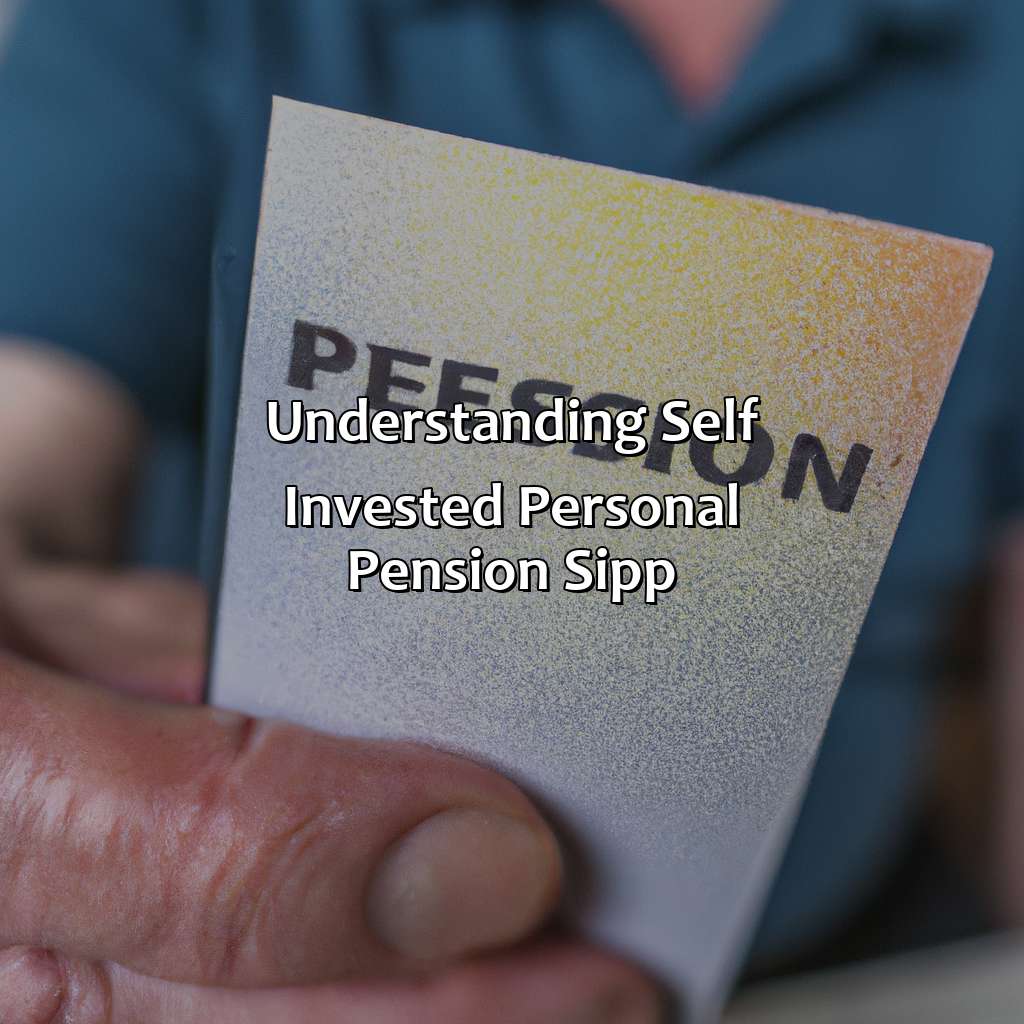
Image credits: retiregenz.com by Harry Washington
Advantages of Self Invested Personal Pension
Let’s dive into the perks of a Self Invested Personal Pension (SIPP)! Tax benefits, control, flexibility, and estate planning are all advantages you can look forward to. See how a SIPP can be a smart investment for your future. Enjoy the tax benefits, have control over your investments, and benefit from estate planning too!
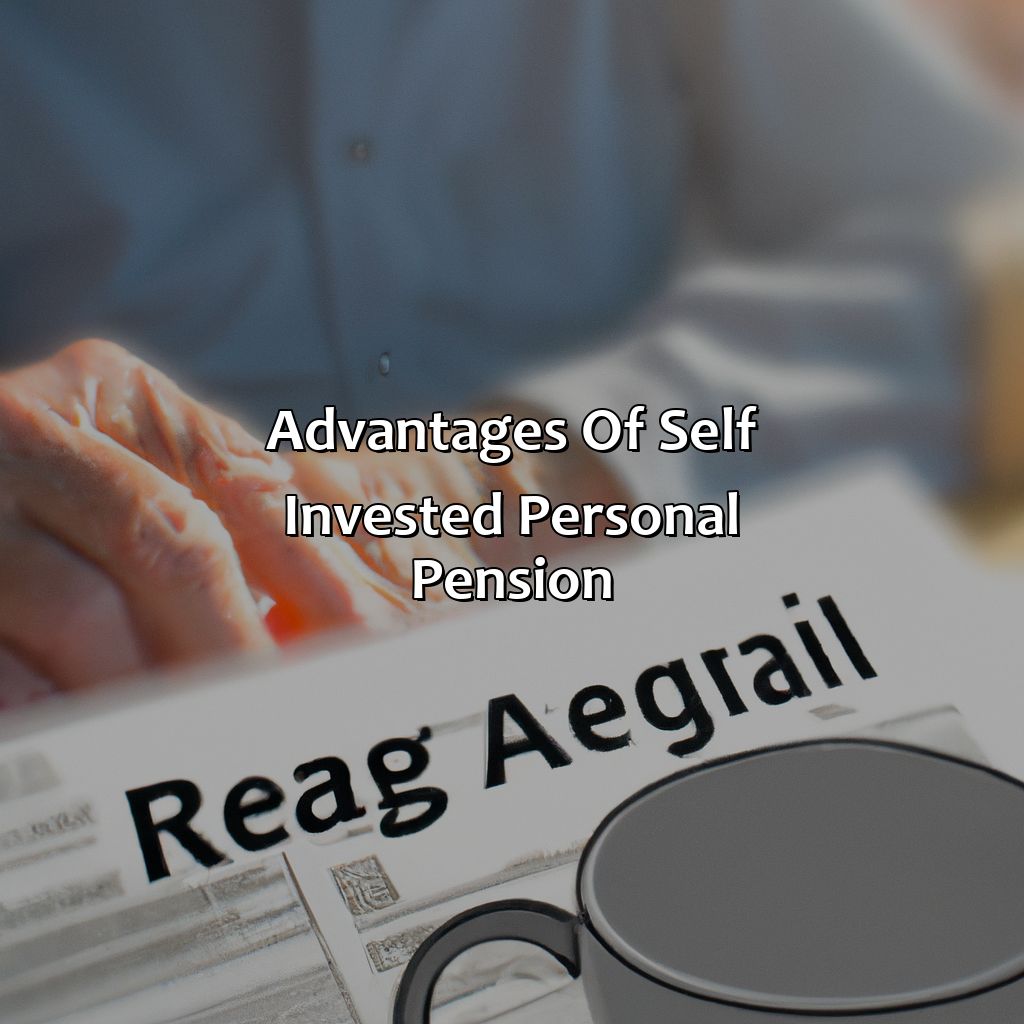
Image credits: retiregenz.com by Harry Woodhock
Tax benefits of Self Invested Personal Pension
One of the main advantages of having a Self Invested Personal Pension (SIPP) is that it offers excellent tax benefits. SIPPs are tax-efficient vehicles intended to encourage people to save for retirement. Contributions made to your SIPP can be deducted from your taxable income, and any investment gains are virtually free of taxes. This means that you are taking advantage of the power of compound interest with fewer taxes than other investment options.
Investment in SIPPs is generally subject to income tax relief up to 40%, depending on individual circumstances. Moreover, you don’t need to pay capital gains tax or dividend taxes on investments within the SIPP wrapper. If an individual exceeds their annual allowance through a carry-forward mechanism, then a tapered annual allowance limit reduction may apply. This implies that eligible UK taxpayers can construct a more extensive pension pot by increasing their contributions or making significant transfers into their SIPP without attracting higher taxes.
Overall, contributing funds into your SIPP account offers considerable benefits if you are preparing finances for retirement, and its tax efficiency guarantees your money goes further in savings. In addition, investments inside your SIPP account allow protection from inheritance tax when you die.
Some years ago in the UK, thousands of companies were estimated not paying employees sufficient fees while passing off these shortfalls as deductions occurring under occupational pension schemes. Many workers discovered that their final pensions would be significantly less than they had expected and could be inadequate for their old age demands. Thus, SIPPs offer greater control over an individual’s financial future by empowering them to take matters in hand for preparing financially sound retirement goals while enjoying substantial taxation relief incentives.
Who needs a financial advisor when you have a self invested personal pension? You’re the boss of your investments, and that’s what we call control and flexibility.
Control and flexibility over investment
Investment control and flexibility are vital features of Self Invested Personal Pensions (SIPPs). You can choose from a wide range of investment options, including stocks, bonds, property, and funds. With SIPPs, you are in charge of your investments, allowing you to tailor them to suit your interests.
With SIPPs investment control, you can also select how your investments grow. It means that if you know where to invest best or got an expert financial advisor guiding how your assets will grow over the years. For instance, you may opt for a more conservative strategy with long-term investments or a higher risk portfolio with greater potential rewards.
Unlike traditional pensions schemes that limit investors’ flexibility when investing in specific asset classes like equities or ISAs or mutual funds at any point of personal pension duration. It provides investors with added financial freedom and diversification opportunities.
Pro Tip: Before choosing a SIPP provider/investor please read their policies carefully to ensure they offer the level of investment control and flexibility you’re looking for.
Why leave your estate to your kids when you can spend it all on avocado toast and ski trips? Self invested personal pensions have estate planning benefits too!
Estate planning benefits
Self Invested Personal Pensions (SIPPs) provide a range of benefits for estate planning beyond traditional pension schemes. SIPPs allow greater control and flexibility in managing assets, such as property and stocks; they offer the option to pass on unused funds to beneficiaries tax-free. One can make provision for dependants by specifying their shares and giving clear instructions regarding distribution.
For those seeking more specific control over their beneficiaries’ bereavement benefits, there are various trust options available under SIPP’s umbrella offering further potential tax advantages. Estate planners also have the flexibility to change beneficiaries and adapt wills with minimal expenses incurred under SIPPs.
However, before embarking on creating an estate plan through SIPP, it is advisable to consider professional investment advice tailored to your personalised financial situation, tax obligations at retirement age and the most suitable type of trust for your particular needs. In this way, you can maximise the prospects of a successful estate planning strategy.
Through optimal SIPP estate planning methods, one can benefit from increased financial flexibility as well as reduced taxation rates while efficiently conserving assets ready to be inherited by loved ones.
Wondering what is a pension annuity?
Proceed with caution, because when it comes to self invested personal pensions, the risks are as real as the tax benefits.
Risks of Self Invested Personal Pension
Know the risks that come with a Self Invested Personal Pension. Concentrate on Investment, Administration and Taxation risks. These could bring disadvantages. In the following parts, we will take a look at each risk. This will help you decide if a self-invested personal pension is right for you.
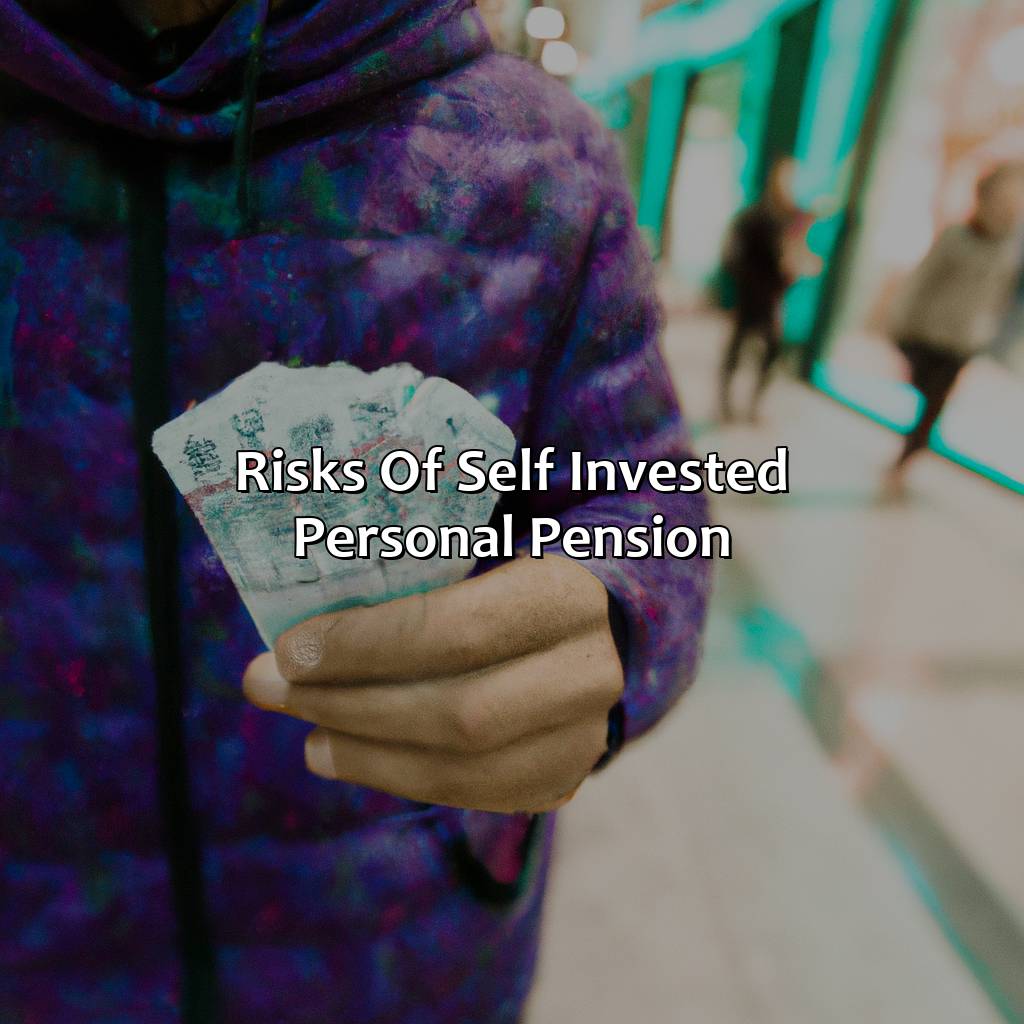
Image credits: retiregenz.com by Yuval Jones
Investment risk
Investing in a self-managed pension plan involves inherent uncertainties and inherent risk that is inherent to the investment. You run the risk of losing your investment if you choose high-risk investments, such as stocks or shares, without careful consideration. Additionally, investing in individual properties, particularly those concentrated in one location, can be risky as market conditions can shift swiftly.
A significant drawback of investing through a SIPP (self-invested personal pension) plan is that it requires substantial financial literacy and expertise to make informed choices. It can be perplexing and exhausting to keep track of how the funds are invested and ensure that they align with your financial objectives/dreams.
Furthermore, unless you select “execution only” management for your SIPP plan, you will undoubtedly pay added costs for receiving expert guidance – which may well surpass the advantages of a “do-it-yourself” approach.
Investment risk cannot be eliminated entirely; nevertheless backing various funds with differing asset classes may minimize damage suffered during deteriorating market circumstances over time.
Administering a self-invested personal pension is like juggling chainsaws, except the chainsaws are paperwork, regulations, and your retirement savings.
Administration risk
The operational hazards involved in a self invested personal pension (SIPP) can be daunting. Inaccurate record-keeping, erroneous identifications, and unauthorized withdrawals can all lead to administrative risk. It is essential to comprehend the potential risks before agreeing to invest in a SIPP.
Numerous factors contribute to administrative risk, including the method of administration, the complexity of investments, and the lack of professional supervision. While certain underlying causes are beyond an investor’s or administrator’s control, others can be minimized through proactive monitoring and risk management techniques.
One unique factor is the compliance checks that investors may miss or overlook. These compliance issues could attract penalties and fines from HMRC, which could have a long-term impact on your savings plan. Therefore it is imperative to stay vigilant of possible compliance issues.
Pro Tip: Before availing SIPPs services, do research about rules aligning with various investment tools and strategies offered by different firms. By doing so will reduce business downtime and loss while maintaining overall productivity.
Uncle Sam will be eyeing your self invested personal pension like a kid in a candy store, and we all know how greedy kids can be.
Taxation risk
One potential risk to consider when investing in a personal pension is the possibility of facing taxation challenges. This can arise from a variety of factors including changes in tax laws, errors made during the investment process, and discrepancies in tax filings. As such, it is important to carefully review all tax-related documents and seek professional advice if needed to mitigate this risk.
Furthermore, it’s worth noting that taxation risks may be particularly acute for individuals who choose to invest in a private pension. While these types of pensions offer greater flexibility and control over one’s investments, they also come with added responsibility for managing tax liabilities. For example, SIPPs can be more susceptible to changes in tax laws which may have a significant impact on overall returns.
It is important to keep in mind that the level of taxation risk will depend on a variety of factors such as an individual’s income level, the amount invested in the pension scheme, and the specific investments made through the pension. Additionally, market volatility and economic conditions may also affect tax obligations.
In a notable instance of taxation risk coming into play, former England footballer Gary Lineker faced scrutiny after it was revealed he had used his SIPP to make extensive contributions to film finance schemes. These types of schemes often fell outside traditional guidelines for pension investments and led to disputes with the UK tax authorities.
Ultimately, while there are risks associated with any personal pension investment strategy – including taxation challenges – careful planning and ongoing vigilance can help mitigate these potential pitfalls.
If you’re eligible for a self invested personal pension, congratulations! You’re one step closer to being both the boss and employee of your retirement plan.
Eligibility for Self Invested Personal Pension
Self Invested Personal Pensions (SIPPs) are a flexible retirement option that permits an investor to determine where to put their pension funds. Eligibility for SIPPs is not standard, and it may differ depending on the individual’s circumstances. Typically, to qualify for a SIPP, you must be at least 18 years old, have some earnings or a source of income, and reside in the UK.
Moreover, to establish a SIPP, you must have a clear understanding of how pension funds invest and the risks of investment. You must assess if a SIPP is an appropriate investment choice for your personal circumstances. It is recommended to seek professional advice before deciding to invest. Additionally, SIPPs can’t be utilized to purchase commercial property that you or your employer will use.
Finally, if you have pension funds that are not invested efficiently and are being charged high management costs, you may consider moving them into a SIPP. This is a useful option to reduce charges and gain more control over your pension savings. Don’t miss out on the advantages of pension investment with a SIPP. Consider getting professional advice to determine if SIPPs are suitable for your personal circumstances.
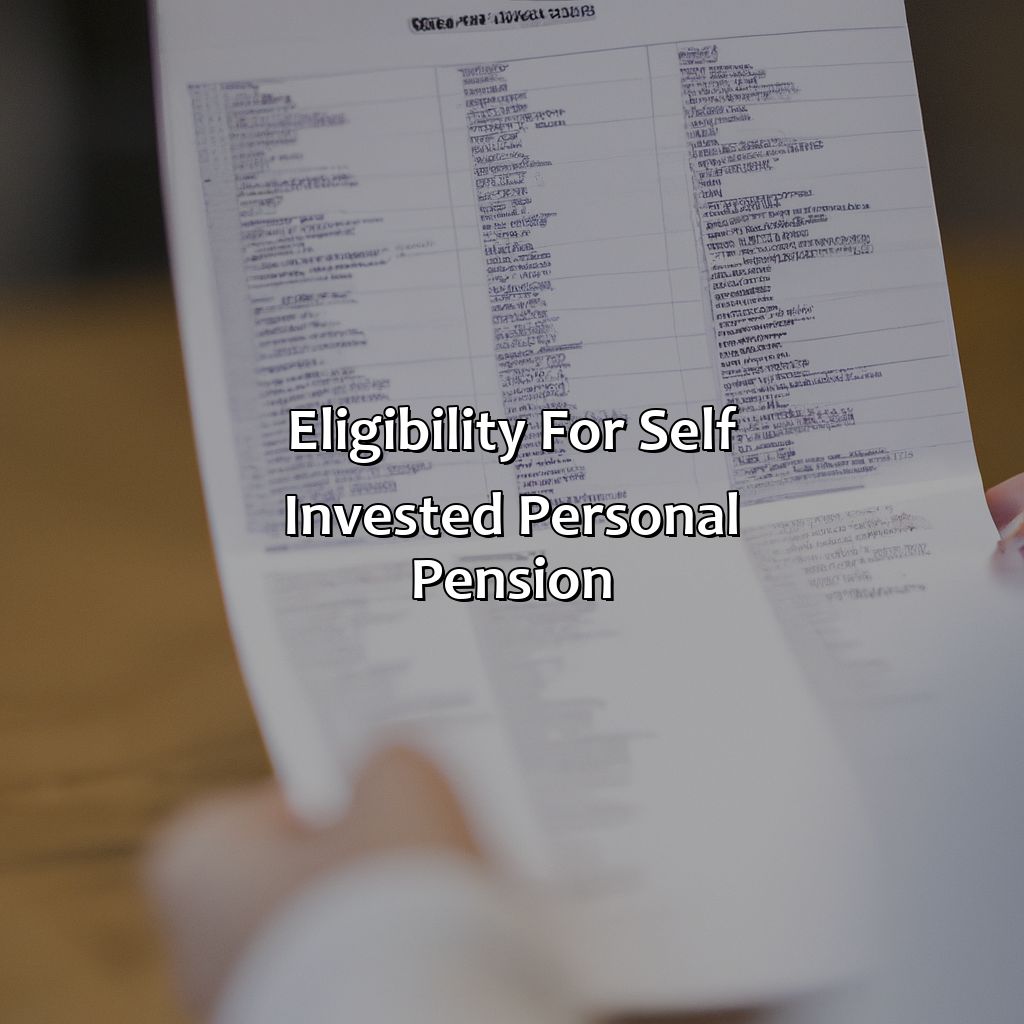
Image credits: retiregenz.com by Joel Duncun
How to set up a Self Invested Personal Pension
A Self Invested Personal Pension (SIPP) is a DIY pension scheme that gives the owner complete control over their pension investments. Here s a step-by-step guide on how to set up your SIPP:
- Choose a SIPP provider: Research and select a company that offers a SIPP service that suits your investment needs and goals.
- Open a SIPP account: Once you have selected your provider, fill out the necessary forms and open your SIPP account.
- Fund your SIPP: You can fund your SIPP through regular contributions or a lump sum payment. Some providers may have a minimum investment amount.
- Select your investments: With a SIPP, you choose and manage your investments. You can invest in a variety of assets including stocks, bonds, and property.
It s important to note that some SIPP providers may charge fees for account setup, annual management, and trading. Make sure you understand the fees associated with your provider before opening a SIPP account.
Finally, it’s worth mentioning that with a SIPP, you are responsible for managing your investments, which can carry risks. Seek professional financial advice before making investment decisions.
A friend of mine, Jane, decided to set up a SIPP to diversify her pension portfolio. She researched several providers and chose one with low fees and a wide range of investment options. With the help of her financial advisor, she selected a diversified portfolio that aligned with her risk tolerance and investment goals. After a few years, Jane’s SIPP had grown significantly, giving her peace of mind and a comfortable retirement outlook.
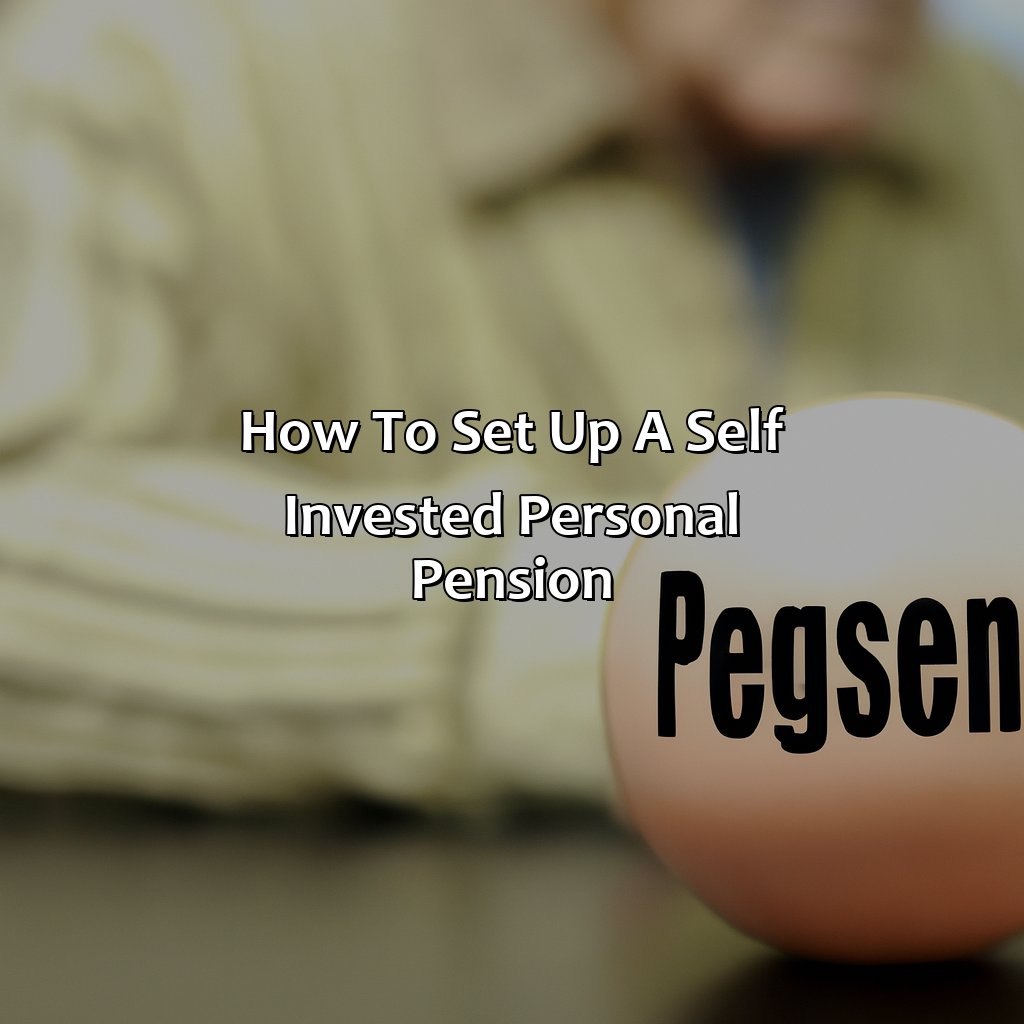
Image credits: retiregenz.com by David Woodhock
Five Facts About Self Invested Personal Pensions:
- ✅ A Self Invested Personal Pension (SIPP) is a type of personal pension plan that gives individuals control over their investments. (Source: Money Advice Service)
- ✅ SIPPs are offered by a range of providers, including banks, insurance companies, and investment firms. (Source: The Telegraph)
- ✅ SIPPs offer a wide range of investment options, including shares, bonds, funds, and property. (Source: Hargreaves Lansdown)
- ✅ SIPPs offer tax benefits, such as tax relief on contributions and tax-free growth on investments. (Source: Which?)
- ✅ SIPPs can be a flexible way of saving for retirement, but it’s essential to understand the risks involved in investing. (Source: MoneySuperMarket)
FAQs about What Is A Self Invested Personal Pension?
What is a self invested personal pension?
A self invested personal pension (SIPP) is a type of personal pension that allows individuals to have more control over their pension investments. Unlike traditional personal pensions, a SIPP allows the individual to choose their own investments, including stocks, shares, and property.
What are the benefits of a SIPP?
One of the main benefits of a SIPP is the control it gives individuals over their pension investments. This can allow for greater potential returns and greater flexibility. Additionally, SIPPs often have lower charges than traditional personal pensions.
Who is eligible for a SIPP?
Most individuals over the age of 18 who are resident in the UK are eligible for a SIPP. However, some providers may have specific eligibility criteria, so it is important to check with individual providers.
What are the risks associated with a SIPP?
As with any investment, there are risks associated with a SIPP. The value of investments can go down as well as up, and there is no guarantee that you will get back the amount you invested. Additionally, investing in property through a SIPP can involve additional tax charges and administrative responsibilities.
How much can I contribute to my SIPP?
The amount that you can contribute to your SIPP each year depends on your age and earnings. The annual allowance for most individuals is currently 40,000, but there are additional rules for high earners. It is important to remember that tax relief is available on SIPP contributions.
How do I open a SIPP?
To open a SIPP, you will need to choose a provider and complete an application form. You will also need to choose the investments that you want to hold within your SIPP. It is important to consider the charges and fees associated with the SIPP before choosing a provider.
